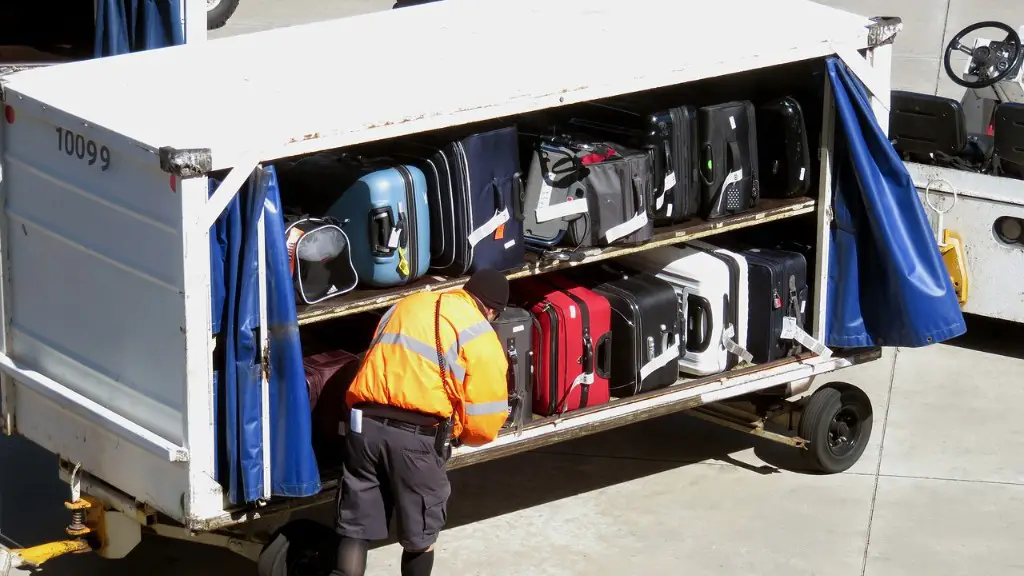There are a lot of things to consider when you’re packing for a trip. What kind of clothes will you need? What type of currency will you need? Do you have all your vaccinations? What about travel insurance?
Most people don’t realize that their regular health insurance doesn’t cover them when they’re outside of the country. That’s where travel insurance comes in. Travel insurance is designed to cover you in case of an emergency while you’re away from home.
There are a lot of different types of travel insurance, and the coverage can vary widely. Some policies will cover you if you have to cancel your trip, while others will cover you in case of a medical emergency. It’s important to read the fine print of your policy before you buy it, so that you know what’s covered and what isn’t.
In general, travel insurance is a good idea for anyone who is planning a trip overseas. It’s better to be safe than sorry, and it’s always better to have a backup plan in case something goes wrong.
There are a variety of travel insurance policies available that cover different types of risks. Some policies may cover trip cancellations, missed connections, medical emergencies, lost luggage, and personal liability. It is important to read the fine print of a policy to understand what is and is not covered.
What is usually covered by travel insurance?
A comprehensive travel insurance policy is a must-have for any traveler. It usually covers delays, cancellations due to sickness or death, lost luggage, and some emergency medical costs. Having this type of coverage can give you peace of mind while you’re away from home, knowing that you’re covered in case of any unforeseen problems.
If you’re planning to travel, it’s important to be aware that your travel insurance policy may not cover you for trip cancellations or interruptions due to known, foreseeable, or expected events, epidemics, or fear of travel. If you’re concerned about being covered in these situations, you may want to purchase a policy that specifically covers cancellations or interruptions due to these events.
What are the benefits of travel insurance
There are many benefits to having a travel insurance plan, especially if you are traveling to a foreign country. Not only will these plans cover you for doctor visits and hospitalizations, they come standard with emergency medical evacuation, repatriation and miscellaneous travel benefits like lost luggage. Having a travel insurance plan will give you peace of mind while you are traveling, knowing that you are covered in case of an emergency.
If your flight is delayed, you may be covered by your travel insurance. Comprehensive travel insurance typically covers canceled flights that delay your trip for at least 3–12 hours. If your flight is delayed more than 12 hours, you may even qualify for trip cancellation coverage, depending on your plan.
What is the most common travel insurance claim?
According to Godlin, claims data shows the top claims are for: Trip cancellation, medical expenses for emergency illness and injury, and reimbursement of certain trip costs if a trip is interrupted.
1. Medical insurance: This type of insurance covers the cost of medical treatment if you become sick or injured while traveling.
2. Cancellation/interruption insurance: This type of insurance covers the cost of cancelling or interrupting your trip for a covered reason, such as a sickness or death in the family.
3. Luggage insurance: This type of insurance covers the cost of lost, stolen, or damaged luggage while you are traveling.
What are the two types of travel insurance?
There are two main types of travel insurance: trip protection plans and travel medical plans.
Trip protection plans cover you in case of trip cancellations, delays, or interruptions. Travel medical plans provide coverage for medical expenses and evacuation in case of illness or injury while traveling.
If you have to cancel or interrupt your trip due to COVID-19, most travel insurance policies will reimburse you 50% to 75% of your trip costs. This can be a lifesaver if you’ve already paid for non-refundable trip expenses, like airfare or accommodation.
Is it worth getting travel protection
Travel insurance is a way to protect your investment in a non-refundable trip. It may cost 5 to 10 percent of the trip cost, but can save you hundreds of thousands of dollars in covered travel-related expenses, like emergency evacuation, medical bills, and trip cancellation and interruption.
Travel insurance is an insurance policy that covers you in the event that you have to cancel your trip or are unable to travel due to an illness or injury. It is a good idea to take out travel insurance as soon as you book your holiday, as it is possible that you may have to cancel your trip after booking but before you have actually left. For example, you may get injured or fall ill and be unable to travel.
What is considered a covered reason for trip cancellation?
Most travelers are concerned about Trip Cancellation and for good reason. The most common covered reason for Trip Cancellation is unforeseen illness, injury, or death of the traveler, a traveling companion, or a non-traveling family member. Other common covered reasons for Trip Cancellation include terrorism, inclement weather, or a natural disaster.
If you have booked an airline ticket and wish to cancel it within 24 hours of booking, you are entitled to a full refund without any penalty. This is in accordance with the rule that airlines must allow consumers to cancel their reservation and receive a full refund without penalty if the ticket is purchased at least seven days before the flight’s departure date and time.
What happens if my flight is Cancelled without insurance
If your flight is cancelled, you have the legal right to either: a full refund, including other flights from the airline that you won’t use in the same booking, such as onward or return flights, or a replacement flight to get you to your destination.
There are a few things to keep in mind when purchasing travel insurance:
-Get the duration right. Make sure the policy covers the entire length of your trip.
-Ensure all your destinations are covered. Some policies only cover certain countries or regions.
-What’s considered a pre-existing medical condition? Some policies will not cover conditions that are considered pre-existing.
-If there’s an element of danger involved in your trip (e.g., extreme sports), you’ll need extra cover.
-Make sure you can afford the excess. The excess is the amount you’ll have to pay out of pocket if you need to make a claim.
-Are all of your belongings covered? Some policies only cover certain items (e.g., laptops and jewelry).
-Report any type of theft immediately. Many policies have a time limit for reporting thefts.
What is a reasonable amount to pay for travel insurance?
Travel insurance is a must if you are travelling. It can cost anywhere between $2 and $6 a day depending on your age, travel destination, cover level and if you have any pre-existing health conditions. Make sure you are fully covered before you travel.
Most experts agree that life, health, long-term disability, and auto insurance are the four types of insurance you absolutely must have. While you may be able to get by without some types of insurance, these four cover the most essential aspects of your life and wellbeing. Make sure you’re fully protected by investing in these four types of insurance.
Final Words
Most travel insurance policies will cover you for unexpected medical emergencies, trip cancellation, lost or stolen luggage, and other unforeseen events that could ruin your trip. Some policies will also provide coverage for optional activities like adventure sports or rental car insurance. Be sure to read the fine print of your policy before you buy it, so you know exactly what is and isn’t covered.
There are many different types of travel insurance, and each one covers different things. For example, some travel insurance policies will cover you if you have to cancel your trip, while others will cover you if you get sick or injured while on vacation. Before you purchase a travel insurance policy, make sure to read the fine print so that you know exactly what it covers.





